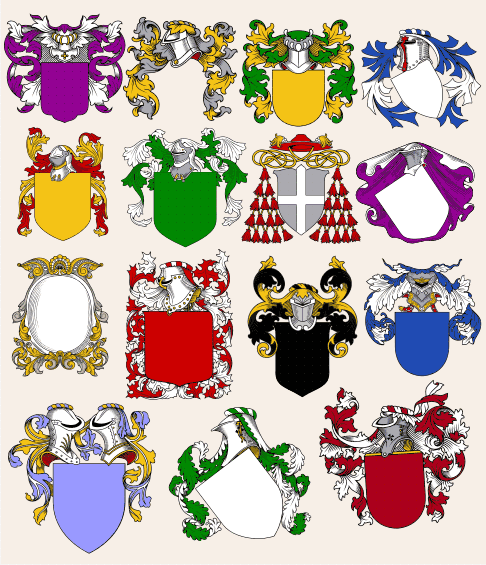Mantling
In heraldry, mantling or lambrequin is drapery tied to the helmet above the shield. It forms a backdrop for the shield. In paper heraldry it is a depiction of the protective cloth covering (often of linen) worn by knights from their helmets to stave off the elements, and, secondarily, to decrease the effects of sword-blows against the helmet in battle, from which it is usually shown tattered or cut to shreds; less often it is shown as an intact drape, principally in those cases where a clergyman uses a helmet and mantling (to symbolise that, despite the perhaps contradictory presence of the helmet, the clergyman has not been involved in combat), although this is usually the artist's discretion and done for decorative rather than symbolic reasons.
Generally, mantling is blazoned mantled x, doubled [lined] y; the cloth has two sides, one of a heraldic colour (the five principal colours being red, blue, green, black, or purple -- there are other very rare colours as well) and the other of a heraldic metal (white or yellow). (See tincture (heraldry) for more on these tinctures.) The mantling is usually in the main colours of the shield, or else in the livery colours that symbolize the entity bearing the arms, though there are exceptions, with occasional tinctures differing from these, or occasional examples in which the outside of the mantling is per pale of two colours, and even rarer examples of other divisions. For example, the Coat of Arms of Canada is mantled white and red, or argent doubled gules. The arms of soverigns are a common exception. The arms of the United Kingdom and those of Emperor Akihito of Japan are both or, lined ermine, such a mantling often being held to be limited to sovereigns.
